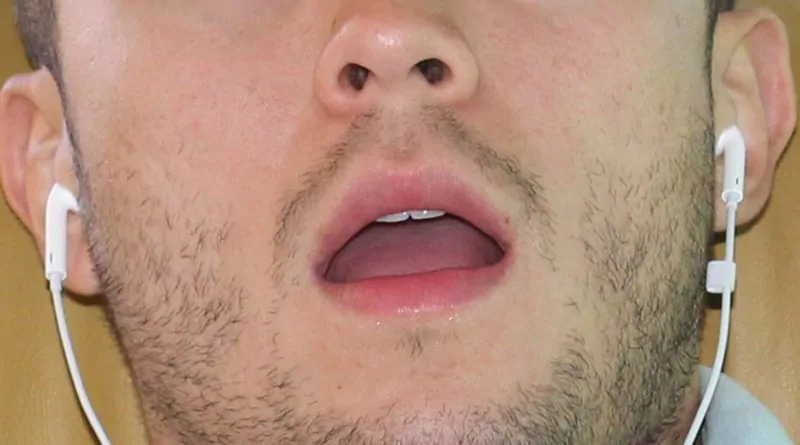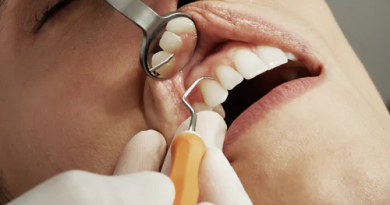Mouth Breathing: Causes, Symptoms, and Treatment
Table of Contents
Overview
Mouth breathing is the part of our breath. We usually breathe through our nose and sometimes when there is congestion in the nose or cold we breathe through our nose. As breathing is a wonderful phenomenon of living creatures. It helps us in acquiring oxygen and releasing our carbon dioxide. We have the tendency to breathe either through the nose or mouth depending on the body condition.
What Is Mouth Breathing?
Mouth breathing can be defined as an act of breathing, which often obstructs breathing through the nose. In some cases when there is intense mouth breathing, it can be an illness.
It is not always bad. During an intense workout, you breathe through your mouth that gets oxygen faster in your muscles.
Breathing through the mouth during sleep may be an invitation to crooked teeth and bad mouth odor. Often this case includes chronic mouth breathing, which is associated with some other condition.
In children, such breathing may result in facial deformities and poor growth.
How would you know if you are breathing through your mouth?
You may not realize that you are breathing through your nose, especially while sleeping. The people who do mouth breathing have the listed symptoms.
- Bad breath
- Dry mouth
- Snoring
- Dry mouth
- Brain fog
- Tired and irritable feeling
- Hoarseness
- Dark circles
However, the mouth breathing in children is a little complex to understand, as they may be not able to communicate about what they are feeling. There are symptoms for children you can observe
- Slower growth rate
- Intense crying at night
- Dry lips
- Irritability
- The problem in concentrating on studies
- Daytime sleepiness
This is it for the symptoms of adults and children. But the question triggers in mind, what causes mouth breathing?
Causes
The possible cause of this condition is obstructed nasal airway. In simple words, there is something that resists the air passing through your nose. If this happens, your body by default activates your mouth to do so.
- Cold, nasal congestion, or allergy
- Enlarged tonsils
- Deviated septum
- Enlarged adenoids
- Benign growth of tissue in the lining of your nose
- The shape of your nose
- Shape and size of jaw
- Tumors (rare)
However, some people do it willingly. Yes, some have a mouth-breathing habit. They breathe through the mouth even when their air passage is clear and no obstruction in the nose.
Another causes:-
In some patients with sleep apnea, usually, breathe through the mouth to accommodate the need for oxygen.
Another reason for this condition can be stress or anxiety. Whenever we feel stressed or anxious, our breath changes. We feel short breathiness and breath through the mouth instead. Stress and anxiety activate the sympathetic nervous system, which results in shallow and abnormal breathing.
Thus, mouth breathing and anxiety are interlinked and require the treatment of anxiety first. Though, the reasons differ from person to person.
Risks Factors
Everyone can breathe through their mouth, but certain conditions can make it more complex.
- Chronic allergies
- Asthma
- Chronic stress and anxiety
- Hay fever
- Chronic or recurring sinus infection
Diagnosis
There is no such specific examination for the diagnosis. The doctor might check your nostrils physically to check the cause of persistent nasal congestion.
He may ask you about the difficulty in breathing, any worry or anxiety you are dealing with, or snoring problems. And if you are dealing with bad odor issues, your dentist may diagnose your mouth breathing.
If your doctor or dentist diagnoses swollen tonsils, nasal polyps, or any other condition. They may refer you to an ENT specialist.
Complications
Mouth breathing dries the mouth. As the saliva secretes in our mouth, helps in washing out the bacterias. The dry mouth often results into:
- Badmouth odor(halitosis)
- Periodontal diseases like tooth cavities and swollen gums
- Ear and throat infections
it may decrease the oxygen content in the blood. And often results in high blood pressure and heart problems. Mouth breathing affects lung function and worsens the symptoms in asthma patients.
In children, mouth breathing may take different cognitive challenges such as:-
- Narrow mouths
- Poor posture
- Dental malocclusion
- Gummy smiles
The children who breathe through the mouth, don’t sleep well at night. Which affects their overall routine and performance.
- Poor growth
- Difficulty in concentrating
- Sleep disorders
- Poor academic performance
Prevention
Yes, you can prevent mouth breathing by following certain things. But the issue arises because your nose shape can’t be prevented.
If you are feeling allergy or nasal congestion, due to some respiratory issue, surely you can prevent making mouth breathing habit. So, it is a good idea to improve your breathing techniques and stay away from chronic mouth breathing.
Here are some prevent points you should follow:-
- Keeping your surroundings clean to prevent yourself from allergies
- Use a saline mist during long flights and cruises.
- Use nasal decongestants or allergy reliever
- Sleep in the way your head should be elevated for entering the air
- Take medicines of cold and cough if happens
- Try various breathing exercises through the nose
- Do not make it a habit of mouth breathing
Yoga and meditation is the best way to stay out of breathing disorders. Try to engage in such calming and introspecting activities to get rid of mouth breathing as well as stress and anxiety.
Restorative yoga activates your parasympathetic nervous system which then promotes slow breath through the nose.
Treatment
The treatments depend on the cause of the condition. If this is happening as a consequence of a cold or allergy, then certain medications will be provided to treat the primary cause.
The medication includes:-
- Antihistamines
- Nasal decongestants
- Some steroidal nasal sprays
Adhesive tapes:- these are the strips which when applied to the bridge of your nose may help in proper breathing through the nose. These adhesive strips are called a “nasal dilator” which helps in decreasing the airflow resistance and makes you breathe more easily through the nose.
If someone has sleep apnea, your doctor may advise you to wear a face mask that has to be applied at night. This therapy is called continuous positive air pressure therapy (CPAP).
The CPAP appliances bring air to your nose and mouth through the mask. The air pressure keeps your airways away from shrinking and getting blocked.
In children, removal of tonsils and adenoids can treat mouth breathing.
Your dentist may advise your children to wear an appliance to widen the mouth palate and help in opening the nasal passage and sinus.
Certain orthodontic instruments such as braces might help in treating the underlying cause of mouth breathing.
Conclusion
Mouth breathing is a normal pattern of breathing during any intense workout or activity. It helps in getting enough oxygen to our muscles faster. However, it can be chronic in certain conditions. For instance, if a person breathes through the mouth, certain health issues may happen as a consequence. Such as dry mouth, tooth problems, bad mouth odor, and in children often results in stunted growth. The primary cause of mouth breathing is allergies, cold, or cough that resists the air passage. Also, some individuals develop the habit of breathing through the mouth. Prevention includes a clean environment that lessens the chances of an allergy. Treatment of includes medicines to overcome allergies, certain adhesive tapes to apply over the nose. And certain orthodontic instruments like braces.
Frequently Asked Questions
Is it bad to be a mouth breather?
Mouth breathing even when you are sleeping can be harmful, as it invites bad breath and gum diseases in adults, and crooked teeth, facial deformities, and poor growth in children. A chronic mouth breathing for a prolonged time can lead to these problems drastically. Although, it is a normal pattern of breathing when you have nasal congestion due to a cold or allergy, or when doing a heavy exercise and taking a deep breath through your mouth quite often.
How do I stop mouth breathing?
Getting rid of mouth breathing is however time taking but with regular practice and effort you will get rid of it soon.
Some of the important things to avoid mouth breathing are as follows:-
Regular practice:- practice a normal pattern of breathing and remember to breathe in and out of the mouth. It doesn’t mean you don’t know how to breathe, but to breathe more accurately and fully. If you want to remove the habit of mouth breathing from your life, you need to practice the normal pattern of breathing regularly.
Keep your nose clean:- a non-clean nose is a common reason for mouth breathing. So, keep your nose clean with nasal sprays or household methods.
Calm your stress:- when you are stressed, you are more likely to breathe through your mouth, without even knowing. Thus, change your environment and try to avoid stressful conditions.
Exercise:- exercise regularly and take a run, it will improve your breathing pattern and will stimulate your nose breathing.
However, in uncommon conditions, you should visit a doctor or Myofunctional therapist to correct your breathing patterns.
What causes mouth breathing?
It is a normal breathing pattern while doing heavy exercises or having a stuffy nose. But if it stays for a long time it can be caused by completely or partially blocked nasal airways.
There are numerous causes other than a blocked nasal passage:-
- Enlarged adenoids
- Enlarged turbinates
- Enlarged tonsils
- Deviated septum
- The shape of the nose
- tumors
What are the effects of mouth breathing?
It affects children and adults differently. Adults normally feel sleep disorders, fatigue, low productivity, and lower quality of life than people who breathe through their noses.
There are distinguished symptoms of mouth breathing:-
For adults
- Snoring
- Bad breath
- Chronic fatigue
- Dry mouth
- Hoarseness
- Dark circles under the eye
For children
- Slow growth than normal
- Increased crying at night
- Irritability
- Dry, or cracked lips
- Difficulty in concentrating in school
- Sleepiness, even at day time
Does mouth breathing change face shape?
Yes, mouth breathing can change the facial structure in children. When someone breathes through their mouth the cheeks muscles have to work more vigorously and become taut. Thus, children who breathe through the mouth are more likely to observe a misaligned facial structure that is long, narrow, and with distinguished jaws, and a retracted chin.
Can you fix mouth breathing face?
Well, to correct it, eliminating some contributing factors like nasal polyps, adenoids and allergies are important. Orthodontics will be needed to address it, fix the mouth breathing face. When these factors are addressed the issue of mouth breathing is reversed along with some targeted exercises of the tongue and lips. As some lips retraining and stretching exercise are crucial for embracing nasal breathing. If the process is challenging for you, a myotherapist will be good to consult with.
Is it OK to sleep with mouth open?
Yes, it is normal to keep your mouth open while sleeping. This habit is more common among children than adults. However, an open mouth during sleep provides more air to you, as it’s the natural way of the body to adjust your breathing.
Does mouth breathing lower IQ?
No, your breathing pattern won’t affect your IQ. Thus, it’s just a myth.
Is mouth breathing a sign of ADHD?
Mouth breathing due to nasal blockage, however, can cause sleeping disorders and prolonged mouth breathing will give rise to symptoms similar to those of- ADHD attention deficit hyperactivity disorder. Hence, the habit of mouth breathing indirectly affects brain activity. Breathing through the mouth rather than the nose can adversely affect your concentration power and result in this attention-deficit hyperactivity disorder.
Why does my child breathe through her mouth?
Mouth breathing in children is caused due to the blocked nasal passage or by enlarged tonsils and adenoids. Children are more likely to develop facial misalignment and poor growth. However, exposure to some allergens like pets or any other particle might cause your child to develop this pattern due to inflamed throat, nasal passage caused by the specific allergen.
Why I can’t breathe through my nose at night?
Nasal congestion is worse at night as when we lie down, the blood flow increases to our head and nose leading to the more inflamed nasal passage. Well, in this matter you can do a few things to help in the proper drainage of the mucus. You can use a saline nasal spray before going to bed. Or you can use a humidifier in your home. Drinking enough liquid is also a very good option to help in loosening the mucus.
Do not drink right before going to sleep, otherwise, you may have to go to the washroom all the hours. Drink the liquid in intervals and do not drink anything 30 minutes before going to bed.



